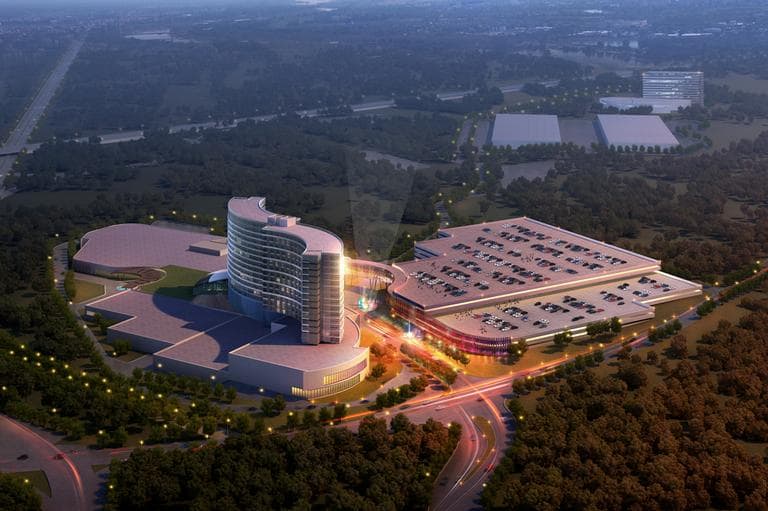Advertisement
Mass. Panel Examines Revised Tribal Casino Deal

State lawmakers demanded assurances on Wednesday from Gov. Deval Patrick's administration and the Mashpee Wampanaog tribe that a renegotiated casino compact would not meet the same fate as an initial agreement and be rejected by the federal government.
"We swung and missed in a pretty big way the first time," admonished Rep. Joseph Wagner, House chairman of a legislative panel that held a hearing Wednesday on the revised compact that would establish guidelines for the operation of a resort casino the tribe hopes to build in Taunton.
The Cape Cod-based tribe faces other hurdles, most notably a requirement that it receive a federal land-in-trust designation for the land on which it hopes to build the $500 million gambling facility.
The Massachusetts Gaming Commission recently voted to open the southeastern Massachusetts region to commercial casino developers, ending a period of exclusivity the Mashpee had enjoyed in the region since passage of the state's casino gambling law in 2011.
Brendan Ryan, Patrick's chief-of-staff, told the Committee on Economic Development and Emerging Technologies that the administration consulted with officials of the federal Bureau of Indian Affairs while renegotiating the compact to ensure the agency's concerns were addressed this time around.
"We wish the first compact had been approved," Ryan said. "We think it should have been approved."
Under the proposed new agreement, the tribe would pay the state 17 percent of gambling revenues if there are no other gambling facilities in the region. The state's share would drop to 15 percent if a slots parlor opened in the region, and to zero if a commercially-operated casino was built in southeastern Massachusetts.
The original compact that was approved by the Legislature but rejected by the bureau called for the tribe to return 21.5 percent of its gambling proceeds to the state. Federal officials said that figure was too high, citing an Indian gambling law that says profits from casino operations should primarily benefit members of a tribe.
Ryan said the state received "constructive feedback" from the bureau in formulating the revised compact.
Yet some committee members, including Wagner, appeared to harbor doubts as to whether the new agreement would fly.
"We don't want to sit here for a third time and ask these questions again," said Wagner, who was one of the chief architects of the casino law. He also questioned whether the administration had received sound advice from the outside law firm it hired to assist in the compact negotiations.
Representatives of the Mashpee tribe predicted the compact would pass muster with the federal agency and sought to reassure lawmakers that its casino plan — despite recent setbacks — remained on track.
Lawmakers had "$2.5 billion in reasons" to approve the compact, said tribal chairman Cedric Cromwell, referring to the amount or revenue the agreement was predicted to generate for the state over a 20-year period.
"The compact is a win-win for the tribe, and the Commonwealth of Massachusetts," said Cromwell.
The tribe on Tuesday unveiled a new architectural design for the Taunton proposal and vows to push forward with the plan, with or without state approval. In the absence of a compact, however, the Mashpee would not be required to turn over any of its future gambling proceeds to Massachusetts.
One committee member called on the panel to delay a vote on the compact until questions over the tribe's land-in-trust application were resolved.
"I think we can wait. I think we can put it on the shelf," said Robert Koczera, a Democrat who represents New Bedford. The city has expressed interest in hosting a commercial casino.
The land-in-trust process is clouded by a 2009 U.S. Supreme Court decision that limits land taking for tribes that were not under federal jurisdiction before 1934. The Mashpee received federal recognition in 2007.
While some experts predict years of legal wrangling that would delay construction of a tribal casino, a lawyer for the Mashpee insisted Wednesday there was nothing in the high court's decision that prevented the U.S. Interior Department from taking land into trust for a casino. The tribe, which has no land of its own but claims strong historical ties to the Taunton area, has also cited an advisory opinion from a federal official that the Taunton site would qualify as an "initial reservation" for the tribe — a possible prelude to land in trust.
This article was originally published on May 15, 2013.
This program aired on May 15, 2013. The audio for this program is not available.